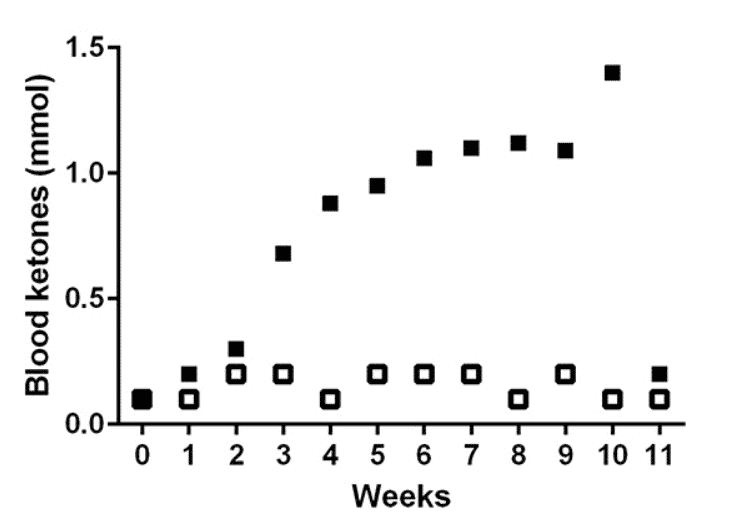13 de December de 2021
Ketogenic Diet and Sport: Are They Compatible?
The ketogenic diet is a diet that has gained great value among the population in recent years. Great references in the sports world such as the fantastic basketball player, LeBron James, or the NFL player, Tim Tebow, have also tried this type of diet with the aim of improving their body composition. The ketogenic diet is a type of diet where the consumption of carbohydrates is reduced as much as possible and where foods rich in proteins and fats abound.
Before starting to analyze this type of diet we must take into account two ideas; First of all, this type of diet has been used with people with type II diabetes mainly and with the aim of reducing the consumption of simple sugars and having greater glycemic control. And, secondly, it is a diet that, like others, goes through its best moment within the nutrition craze.

What is the ketogenic diet
The ketogenic diet owes its name to the use of ketones as an energy substrate. Our body is designed to use carbohydrates as the main source of energy. That is why, when you are going to make a physical effort, the use of pasta is recommended since it constitutes the vast majority of complex carbohydrates. When the body does not have carbohydrates to produce energy, it uses ketone bodies (ketones) as a wild card. This is because the ketone body has the ability to overcome the blood-brain barrier and, therefore, serve as an energy substrate for the brain. However, carbohydrates can be divided into simple and complex. The difference between the two is based on the physiological response they produce in the body and while some favor insulin peaks, the others don’t.

Once this has been analyzed, it should be noted that the cetogénica diet is based on the reduction of the intake of all types of carbohydrates. As we have mentioned, when this happens the organism creates and uses the ketone body as a substitute (1). In this sense, for those athletes who spend long hours doing physical exercise and see their glycogen deposits reduced (the way in which carbohydrates are stored) it is interesting to accustom the body to work with ketone bodies as an energy substrate. In addition, it has already been shown, in animal models, that ketogenic diets can improve the ability to exercise (2) and have a reducing effect on lactate concentration after exercise in elite athletes (3). However, there is controversy as to the usefulness of this type of diet in strength sports and sometimes in endurance sports. This is because since fats with a very powerful energy substrate and it would make more sense to enhance the use of this substrate instead of using ketone bodies as an energy source.
Analysis of the ketogenic diet in endurance athletes
That is why, in this week’s post we are going to review the scientific literature starting with the systematic review conducted by Caitlin and collaborators in 2020. In this review, only athletes from endurance modalities such as athletics, triathlon or cycling who randomly (almost entirely) performed a high-carbohydrate diet and a low-carbohydrate diet (4) were analysed.
The aim of this study was to test whether a 4-6 week period of a low-carbohydrate diet could have an effect on athletic performance measured with a maximal stress test (Vo2Max). After analyzing this article in depth, we found that there are not many studies that combine the variables mentioned above. That is why the results are somewhat ambiguous. On the one hand, we see that 4 out of 7 studies do not see significant difference between one type of diet and another, however, 3 studies report an improvement in performance after the ketogenic diet. These contradictory results can be explained because the stress test is dependent on other independent variables so a cause-effect association could not be made.
On the other hand, far from improving oxygen consumption levels, there are several studies that link the ketogenic diet with worse performance in trained people. It should be noted that the organism always seeks homeostasis. That is why, for the improvement of performance, overload must be used, on the one hand, and, on the other hand, novel stimuli for the body in order to produce the adaptations that favor better performance. If the body of an elite athlete is accustomed to a diet rich in carbohydrates and we take away the main source of energy, it is logical that performance goes down. In fact, this is what was seen in the studies of Zinn and Shawn, where the performance after several weeks of ketogenic diet decreased (5, 6).

Analysis of the ketogenic diet in strength expression sports
In the same way, when we analyze the use of this type of diet in sports of expression of strength, we find that the ketogenic diet is not related to an improvement inpower, maximum strength or explosive strength. This is the case of the study by David Green and collaborators in which they analyzed the consumption of this type of diet in powerlifters (7). On this occasion, they found neither an increase nor a reduction in sports performance.
On the other hand, another study conducted in crossfit athletes did not find a detriment or an improvement in sports performance after monitoring this type of diet (8) although they did find an improvement within the body composition and hormonal environment. Apparently, the increase in ketone body levels, as we see in the picture, is accompanied by an increase in testosterone levels that appeared to be higher after following a ketogenic diet compared to a Western diet. This increase in testosterone facilitates a hormonal environment conducive to the development of muscle mass and anabolic growth. These results accompany previous ones where the ketogenic diet seems to be effective in reducing weight and improving body composition.

Whether or not the ketogenic diet promotes fat reduction and muscle gain
Finally, we will check if this type of diet favors the reduction of fat mass and the increase of muscle mass in trained athletes. If we analyze the previously mentioned studies we see that in both cases they reduced weight and maintained sports performance. If we relativize this maintenance of performance with a reduction in body weight, an improvement in performance is appreciated. That is, if weighing 100 kg you are able to lift 100 kg in bench press your relative strength will be 100/100 = 1. And if you reduce your weight to 90 kg but keep lifting 100 kg your relative strength will be 100/90 = 1.11. Therefore, we can confirm that a reduction in weight following a ketogenic diet favors the increase of relative strength.
On the other hand, when we analyze the effect of a “keto” diet on weight and the cardiometabolic profile in people with diabetes, hypertension or obesity, we see that all of them reduce weight and improve their cardiovascular risk profile (9, 10). It seems that this type of diet is effective when it comes to the treatment of cardiometabolic diseases.
Last words
By way of conclusion and being very cautious, it is important to keep in mind that the follow-up of any type of diet must be scheduled by a nutritionist or an endocrine. This type of diet, wherethe consumption ofa macronutrient as essential ascarbohydrates must be followed very thoroughly by a doctor or a nutritionist. As we mentioned at the beginning of the post, this diet has been used on multiple occasions in people with type II diabetes due to its potential for glycemic control.
However, the person in charge of prescribing this diet has always been an endocrine. On the other hand, scientific evidence suggests that for endurance athletes the ketogenic diet offers no greater benefits than a usual Western diet. In turn, and in the same direction, the literature indicates that for sports of expression of strength the diet “keto” does not favor or impair performance. However, if the goal is the reduction of fat mass, the ketogenic diet may play a key role. We have been able to verify that it is a valid and useful tool for the reduction of weight and the improvement of the caridometabolic profile. However, from this blog, we do not recommend anyone to follow this type of diet without first talking to their dietitian-nutritionist or doctor.

